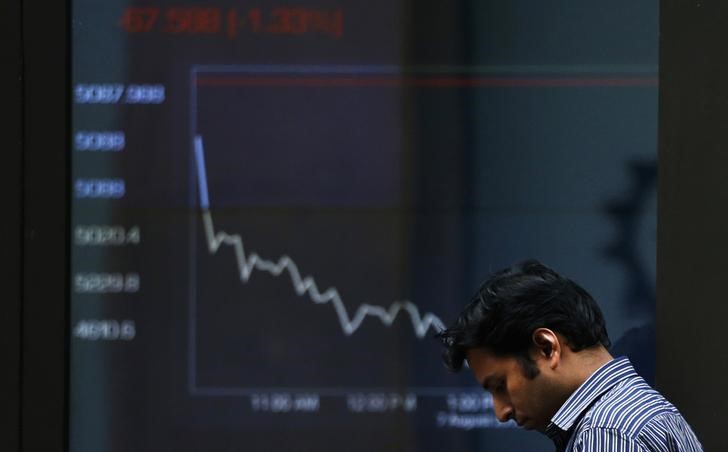Asian stocks muted amid economic fears, Fed decision awaited
2023.05.01 23:39

© Reuters
Investing.com– Most Asian stock markets kept to a tight range on Tuesday as concerns over worsening economic growth and a potential bank crisis weighed, with traders also turning cautious before a Federal Reserve meeting due this week.
Asian bank and financial stocks came under pressure from renewed fears of a U.S. banking crisis, especially after beleaguered lender First Republic Bank (NYSE:) was taken over by JPMorgan Chase & Co (NYSE:) in an emergency deal.
But regional trading volumes were limited on account of a market holiday in China, although weak economic readings from the country battered sentiment towards Asian markets.
Chinese – a bellwether for the economy- unexpectedly shrank in April, data showed over the weekend. also grew less than expected, indicating that a post-COVID economic rebound was running out of steam.
The trend bodes poorly for broader Asian economies, given China’s place as a major trading partner for the region. Markets are now awaiting the Chinese market open on Thursday for a reaction from the country’s stock market.
Hong Kong’s index rose 0.3%, reversing early losses after Chief Executive John Lee said the city’s economy grew 2.7% in the first quarter. , due later in the day is expected to show that the economy grew 1.9%.
Japan’s index fell 0.1%, while Australia’s index fell 0.1% ahead of a later in the day. The RBA is widely expected to hold interest rates for a second straight month, amid signs that inflation has peaked.
Technology-heavy indexes saw some gains, following a string of better-than-expected earnings from the sector last week. South Korea’s added 0.7%, while the index added 0.3%.
Regional markets took a weak lead-in from Wall Street indexes, which as traders hunkered down before the Fed meeting. The central bank is widely expected to on Wednesday, although markets are uncertain over whether the bank will signal more hikes.
Recent data showed U.S. inflation was higher than expected in March, while separate readings also pointed to strength in the jobs market- two trends that are likely to attract more hikes.
But on the flipside, U.S. economic growth also appears to be cooling substantially, which may reduce the headroom the Fed has to keep raising rates.








